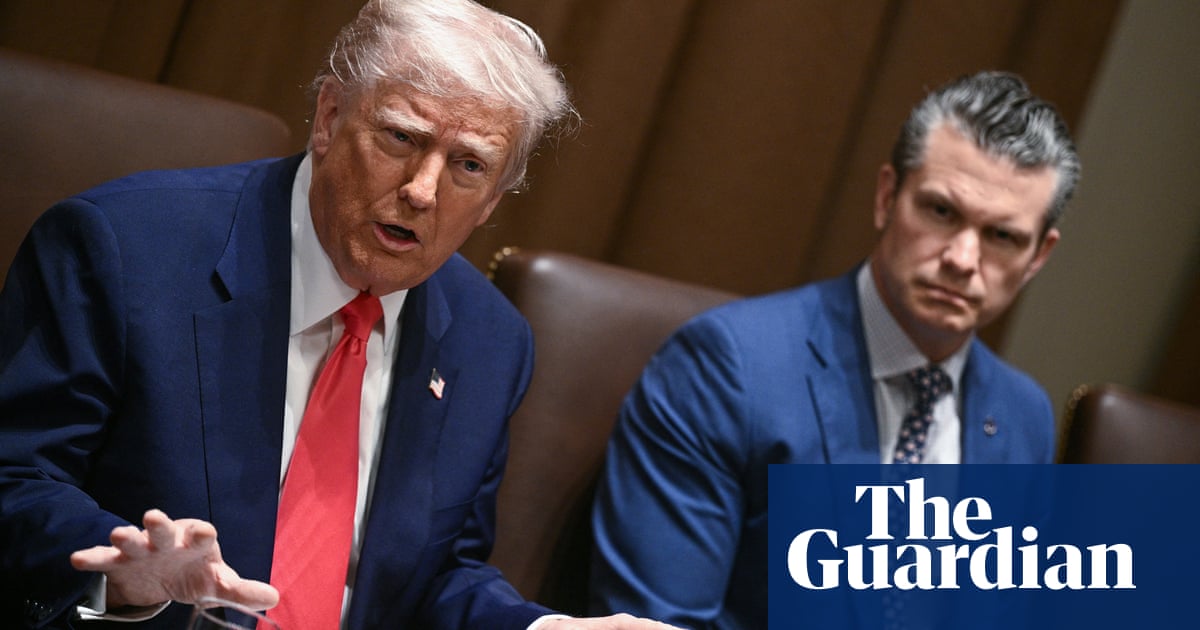Donald Trumpoffered public support for defense secretaryPete Hegsetha day after itemergedthat Hegseth had shared information about US strikes in Yemen last month in a secondSignal group chatthat included family, his personal lawyer and several top Pentagon aides.
“He’s doing a great job. Ask the Houthis how he’s doing,” Trump said dismissively, referring to the rebel group inYementargeted by those missile strikes, on the sidelines of the White House Easter egg roll event on Monday.
Hegseth was revealed to have shared, in a series of messages, plans about US strikes against the Houthis on 15 March before they happened in the Signal group chat that included his wife, his brother and a number of his top military aides.
The details that Hegseth sent in were essentially the same information that heshared in a separate Signal group chatearlier this year that mistakenlyincluded the editor of the Atlanticin addition to JD Vance and other top Trump officials, a person directly familiar with the messages said.
But pressure on Hegseth has so far come from people outside of the White House. Trump called the defense secretary on Sunday after the story broke and aides concluded that it had been leaked to the news media by a former Hegseth aide who was in the group chat but abruptly fired last week.
Trump has resisted firing top officials in his second term, not wanting to be seen as caving to a media swarm even if he has been unhappy with the negative coverage. Trump alsostuck by his national security adviser, Mike Waltz, who had added the editor of the Atlantic to the first chat.
According to a person familiar with the call, Trump told Hegseth that he had his support and that disgruntled leakers were to blame for the story, which was first reported by the New York Times.
Trump also told his team to back Hegseth in public, and senior Trump aides repeated their defense line that none of the information shared in either of the group chats were classified, although the accusations have centered on why it was shared with Hegseth’s wife, for instance, since she is not a Pentagon official.
Sign up toThis Week in Trumpland
A deep dive into the policies, controversies and oddities surrounding the Trump administration
after newsletter promotion
The defense secretary himself appeared furious when asked about the second Signal chat during the White House Easter egg roll event on the South Lawn, telling reporters that the story was a “hit piece” that repeated his defense that it had been pushed by “disgruntled former employees”.
But Hegseth faced growing pressure to resign after John Ullyot, his former spokesperson, wrote in an extraordinary opinion essay in Politico on Sunday that the Pentagon was “in disarray under Hegseth’s leadership”.
Republican congressman Don Bacon, who sits on the House armed services committee, did not explicitly call for Hegseth’s resignation butsuggested he would not keep Hegsethin place were he was the president.
“I had concerns from the get-go becausePete Hegsethdidn’t have a lot of experience,” said Bacon, a former air force general. “I’m not in the White House and I’m not going to tell the White House how to manage this … but I find it unacceptable and I wouldn’t tolerate it if I was in charge.”
